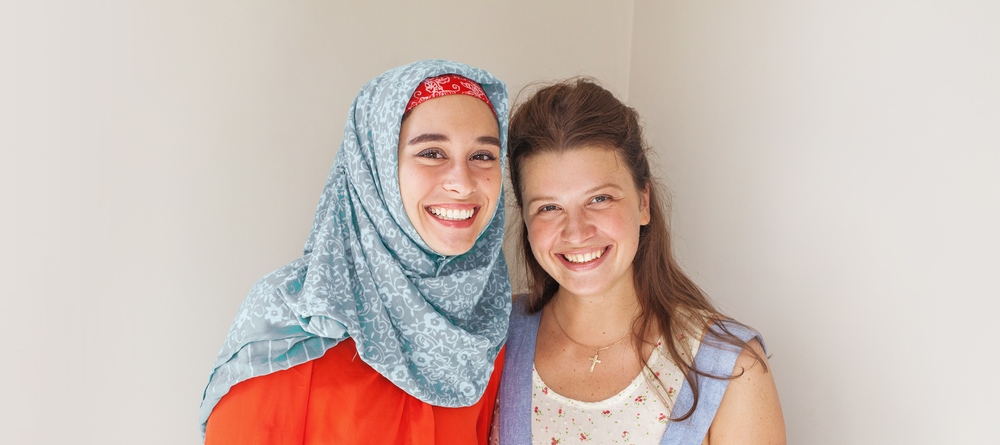I used to be afraid of Muslims. My only knowledge about them came from the media, especially following the 9-11 tragedy. Like many others, to me a Muslim equaled a terrorist.
So how did I overcome my fear of Muslims? In 2010, I met a Muslim woman from Pakistan. She is a kind and generous person who now practices as a nurse to help other people. In 2011, I met ladies from Morocco. I spend time with them learning about their culture. Through our friendships, I have learned what they believe. I have learned from them what it means to be hospitable. I have learned that they have the same hopes and dreams that I do. I also have Muslim friends from Iran, Jordan, Yemen, India, and Syria.
I used to think I could read a book on Islam and understand Muslims completely. However, I have learned that Muslim women are just as diverse as American women. Now I know, you cannot “put them in a box.” They come from different socioeconomic levels, education levels, spiritual commitments, and cultures (only 20% of Muslims are Arabic), just to name a few.
I have come to understand many Muslims behave based on an honor/shame society. The article, “Understanding 8 traits of HonorShame Cultures” I read on honorshame.com is helpful. Without summarizing all the points, the article explains they are more concerned about group identity than individual identity. It is the reason one of my Muslim friends became a doctor like her father, instead of becoming a fashion designer as she wished. Honor/shame societies have distinct gender roles. Men advance family honor in public, and women avoid shame in the private realm (modesty). Interestingly, many of these “stereotypes” are changing in some of the Muslim world. The fact Muslim women are becoming doctors and some are not wearing the head covering are just two examples of some culture shifts.
I used to think all Muslim women who wore the head covering (different names for different types) were oppressed by their husbands and forced to wear it. However, I have learned that it is a part of their modest culture, as mentioned. One of my friends said her husband gives her the choice to wear it, or not. In fact, he would prefer her to not wear it, but she likes to wear it in public. She will not wear it in her home unless other men are present. Many of my Muslim friends do not wear a head covering.
I found it comforting to know not all Muslims take their holy scripture, the Qur’an, literally. For this reason, Muslims can live their whole life and never kill an “infidel” (enemy of Islam) and still be considered a good Muslim. Besides, many Muslims do not even read the Arabic book. Either Arabic is not their original language, or even if they speak Arabic like my Moroccan friends, they say the Arabic language has changed since the Qur’an was first compiled in 650 AD. Therefore, it is difficult for them to understand. Many rely on the Imam (leader of the local mosque) to teach them.
I have found them very open to talk about religion. This makes it easy to share the truth about Jesus with them, even though they do not easily accept it. I wrote another blog post a few years ago that explains some reasons for their unbelief. (http://stacyneus.blogspot.com/2013/05/muslim-perspectives-they-think-what.html)
I pray other followers of Jesus will take the time to meet a Muslim friend. We should not let fear be the excuse to not share the love of Jesus with our neighbors. We should not be like the lawyer in Luke 10. When he asked Jesus, “Who is my neighbor?,” he wanted to know how Jesus defined “neighbor,” not so he would know who to love, but who he does not have to love.
As Jesus shared the story of the Good Samaritan, the lawyer left knowing our neighbors we are to love may be the very people we were told to hate. May our Muslim friends come to know Jesus through His love and our love for our neighbors.
